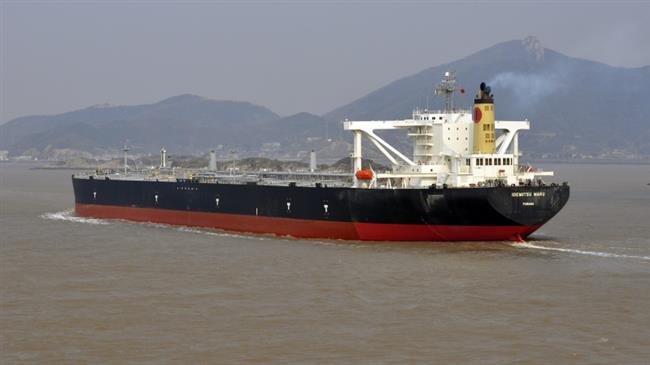Japan's Finance Minister Taro Aso has pressed his US counterpart Steven Mnuchin to ensure Japanese firms are not hurt by Washington's sanctions on Iran, Kyodo news agency reported Friday.
The two men met in Bali, Indonesia, on the sidelines of a gathering of finance leaders from the Group of 20 major economies, which Mnuchin used to promote US sanctions snapping back against Iran's oil sector in about three weeks.
The Japanese minister told a press conference he had relayed to Mnuchin his “hope that Japan's concerns are addressed.”
Japanese officials have said Iran's oil is “extremely important” to their country's energy security. Minister of Economy, Trade and Industry (METI) Hiroshige Seko said last month Japan “intends to have talks with the US tenaciously in order to continue Iranian crude oil imports.”
US President Donald Trump has pledged to bring Iran's oil imports down to zero. On Thursday, he said the US “will take care” of countries which defy the directive.
“We will take care of them,” Trump told reporters when asked about the decision of some countries like India and China to continue to purchase oil from Iran.
Indian Oil Minister Dharmendra Pradhan on Monday said that two state refiners have placed orders for importing crude oil from Iran in November.
Data released by traders and shipping intelligence firm Kpler showed recently that Indian buyers had lifted purchases of Iranian crude to 502,000 barrels per day (bpd) last month, up 111,000 bpd over August.
On the other hand, India’s purchases of US crude oil fell by 75 percent over the past four months, the data indicated.
The firm said China had also increased shipments from the Middle Eastern country by 29,000 bpd to 620,000 bpd, while cutting its US purchases amid an ongoing trade spat with the United States.
US and India were to resume high-stakes negotiations Friday over the US request for India to slash its Iranian oil imports, reports said.
Brian Hook, head of the US State Department's Iran action group, and Francis Fannon, assistant secretary for energy resources, were to travel to India and later hold talks on Iran in Europe with EU counterparts and the International Energy Agency.
Secretary of State Mike Pompeo has said since July that the government would consider requests for sanctions relief from a “handful of countries”.
On Tuesday, the US administration marked its first retreat on the planned sanctions, allowing a gasfield partly owned by the Islamic Republic in the North Sea to keep operating.
The Rhum field northeast of Aberdeen, which supplies around 5 percent of Britain’s gas demand, has now received a new operation license from the US Treasury, UK-listed producer Serica Energy said.

